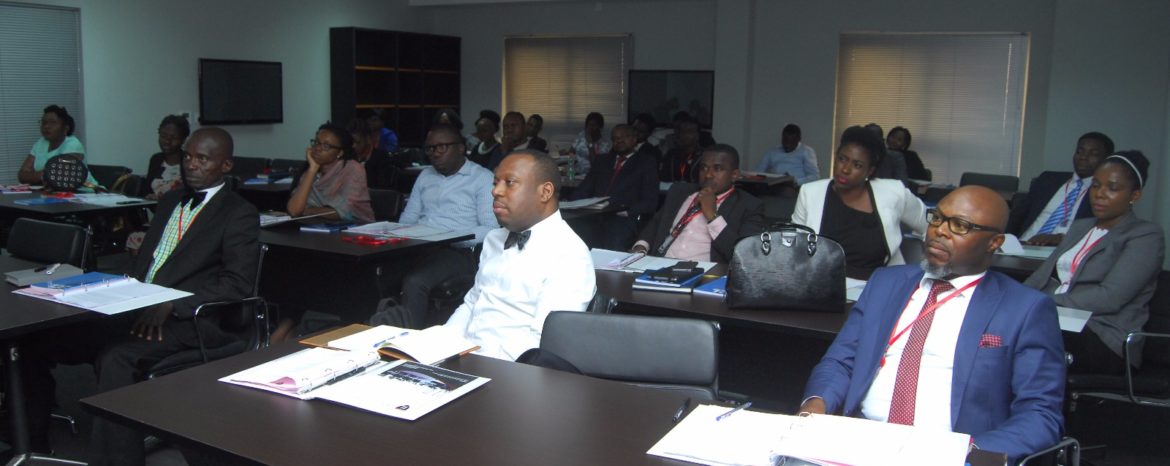Mr Olatunde Adejuyigbe, SAN has highlighted the role of well drafted pleadings, written addresses and legal opinions in all actions commenced by Writs.
He was speaking at a seminar organised by the Commercial Law Development Services (CLDS) – a frontline consulting, legal research and professional development organization – on “Pleadings, Written Addresses and Legal Opinions”. The programme which was held on Thursday, March 9, 2017 at the Lagos Court of Arbitration (LCA) became imperative so as to enable participants write succinctly without being superfluous but with an appropriate level of detail that should be able to convey the client’s positions in a compelling manner. The participants were drawn from oil and gas organizations, law firms and a non-governmental organization (NGO).
Mr Adejuyigbe, SAN explained that the golden rule of civil litigation is that parties must lay their cards on the table and are not allowed to spring up surprises. While delivering a paper entitled “Rules & Dynamics of Pleadings and Written Advocacy: Dispute Prevention and Settlement through Expert Determination and Dispute”, he stated that “the essence of pleadings is for parties and the Court to ascertain the issues in contention and confine themselves to the same. The duty of a trial court is limited, strictly limited and confined to trying the issues arising from the pleadings. Court cannot fill in the gaps in a case put forward by a party. A trial Court is not to go on a wild goose chase without reference to the pleadings”
Finally, he advised that in presenting the Final Address, Counsel must observe the rules of Accuracy, Brevity and Clarity. As stated in the Rules of Court, the submission must be a succinct statement of argument on each issue as a Written Address is not a dissertation or the forum to offer a treatise to the Court on an issue of law.
Also speaking at the Seminar was Mr Adebowale Kamoru, Head of Chambers, Pinheiro LP, who presented two papers on “Modern Trends and Requirements for Drafting Pleadings and Briefs; Skills/Rules for Legal Opinion” and “Reconciling the conflict between Written Briefs and Advocacy: Fast Track at the Court of Appeal”. He began by pointing out that the innovation of filing of briefs of argument was introduced in 1977 by the Supreme Court Rules, 1977. Prior to that period, there was no filing of briefs. Counsel were coming to Court to present their oral arguments. This was found to be tedious and it did inhibit preparation of cases by opposing counsel and research by the Court, prior to oral submissions, which were to be made before it. And so, the system of brief filing was introduced.
He further disclosed that “the importance of the requirements of brief writing cannot be over-emphasized. Firstly, appeals are prosecuted and defended at the appellate court upon filing and exchange of briefs of argument. Also at the High Court level, the use of written addresses has now become fundamentally entrenched. For instance, by the provision of the High Court of Lagos State (Civil Procedure Rules) 2012, written addresses are now required to accompany any formal application failing which the application would be deemed to be incompetent” In addition, he explained that the art of Legal Opinion writing is an indispensable tool in legal practice. This is because legal opinion writing is at the core of every lawyer’s business. “Although, there is no agreed standard regulating how legal opinions should be written, however there are certain standards and guidelines that one should adhere to in writing a legal opinion”, he added.
The organisers, Commercial Law Development Services Ltd (CLDS), offer trainings to legal managers, in-house counsel, general legal practitioners in the private and public sector. Its clientele spans across the Banking, Energy, Information Technology, Maritime and Transport, Power and Oil and Gas sectors.
CLDS would organise a programme on Disputes Resolution Mechanisms, with special reference to Negotiation and Mediation – “Negotiation & Mediation as Dispute Settlement Mechanisms in Commercial Transaction”.
This programme comes up on Wednesday, March 29, 2017.


